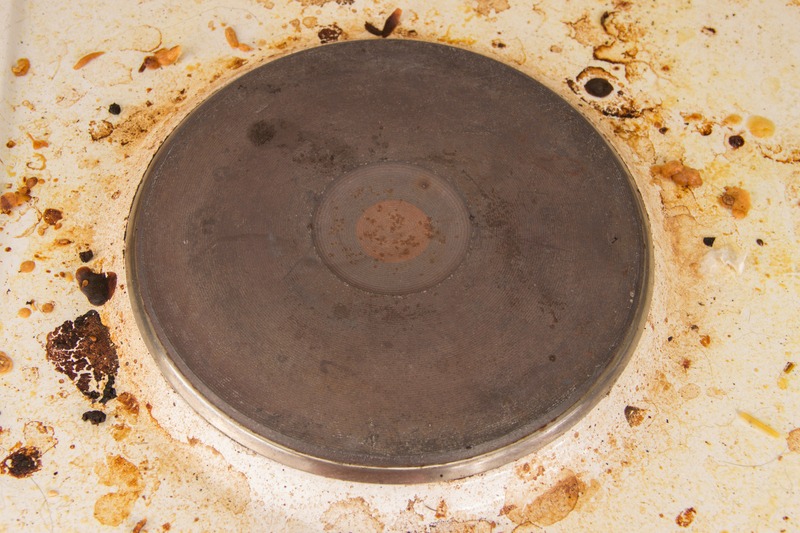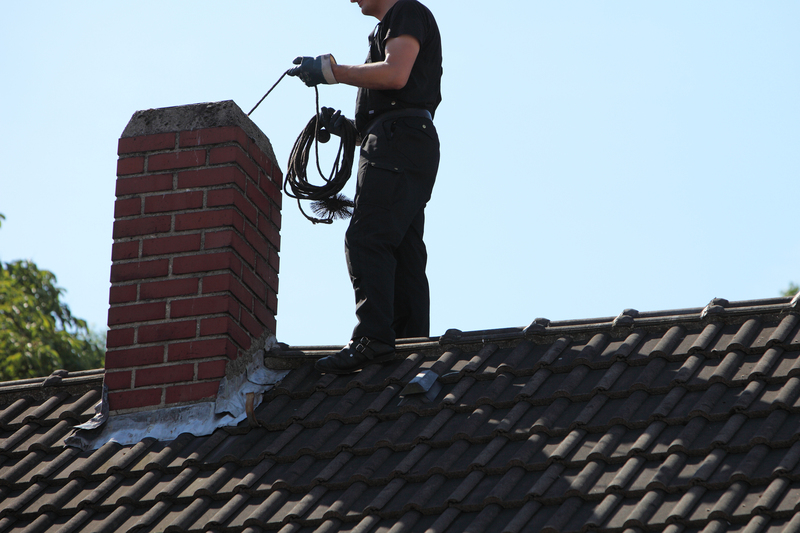Clear Out Musty Smells with Ease
Posted on 02/07/2025
Clear Out Musty Smells with Ease: A Comprehensive Guide
We've all experienced it: that lingering, musty odor that settles into our homes, closets, or basements and simply won't go away. The presence of musty smells can make rooms feel unclean, affect air quality, and even signal underlying problems such as mold or mildew. Fortunately, eliminating musty smells isn't as hard as it may seem! This guide will explore proven tips and effective techniques to clear out musty odors with ease, ensuring your home smells as fresh and inviting as possible.

Why Do Musty Smells Occur?
Before you start tackling musty odors, it's important to understand their root causes. These smells are often caused by moisture, which creates the perfect environment for mold, mildew, and bacteria to thrive. When these microorganisms grow, they release volatile organic compounds (VOCs) that lead to that unmistakable musty scent. Common sources of excessive moisture include:
- Leaky pipes or roofing
- Poor home ventilation
- Damp basements or crawl spaces
- Improperly stored clothes or linens
- Flooding or water damage
Identifying the source of persistent musty smells is the first step to eradicating them for good.
The Simple Steps to Clear Out Musty Odors
1. Locate and Address Moisture Sources
Moisture is the most common reason for any musty odor. Start by inspecting your home, especially basements, bathrooms, laundry rooms, and attics for leaks or excess dampness. Fix any plumbing leaks, seal basement cracks, and inspect roof areas regularly.
- Use a moisture meter to detect hidden damp spots
- Check under sinks, behind appliances, and beneath windows
- Ensure your home's foundation is free from cracks
2. Improve Ventilation and Airflow
Poor air circulation traps humidity, leading to stale, musty air. To evacuate musty odors successfully:
- Open windows and doors daily to let fresh air circulate
- Install exhaust fans in kitchens and bathrooms
- Consider using ceiling fans or box fans to keep air moving
- Utilize an air purifier with a HEPA filter for extra freshness
3. Reduce Humidity with Dehumidifiers
If you live in a humid climate, investing in a quality dehumidifier can make a significant difference. These devices pull excess moisture from the air, keeping the humidity level in check and making your home less hospitable to must-producing mold and mildew. Aim to keep your home's relative humidity between 30% and 50%.
- Empty and clean your dehumidifier's tank regularly to prevent mold buildup
- Position the device in trouble spots, such as basements or laundry rooms
4. Thoroughly Clean Affected Areas
Dirt and dust can trap moisture and foster the growth of odor-causing mold and bacteria. Deep cleaning is vital to remove musty scents:
- Wash fabrics (curtains, carpets, bedding) in hot water with a cup of white vinegar
- Scrub hard surfaces (walls, floors, windows) with a mixture of water, vinegar, and mild detergent
- Don't forget to clean behind furniture and along baseboards!
5. Target Mold and Mildew Directly
If you discover visible mold or mildew, act quickly to prevent further spread--and more persistent odors.
- Wear gloves and a mask
- Spray vinegar or a commercial mold remover onto affected surfaces
- Let the solution sit for at least 15 minutes, then scrub thoroughly
- Dispose of heavily infected porous items if necessary (such as old insulation or carpet)
6. Absorb Odors with Natural Deodorizers
Several household items can neutralize musty smells safely and naturally:
- Baking soda: Sprinkle on carpets, rugs, and upholstery. Let sit for a few hours and vacuum away.
- Activated charcoal: Place in open bowls or breathable bags in musty areas to absorb odors.
- White vinegar: Leave a bowl of vinegar in the room overnight--this absorbs and neutralizes smells.
- Coffee grounds: Their rich aroma can also mask and absorb musty scents from smaller spaces.
7. Refresh Air with Essential Oils
While not a substitute for removing the root cause, essential oils leave a pleasant fragrance after clearing musty smells. Good options include:
- Lemon (zesty and uplifting)
- Lavender (calming and fresh)
- Tea tree (antimicrobial properties)
- Eucalyptus (invigorating and crisp)
Simply add a few drops to a diffuser or spritz rooms with a homemade spray diluted in water.
8. Clean and Maintain HVAC Systems
Heating, ventilation, and air conditioning (HVAC) systems can circulate musty air throughout your home if not cleaned regularly. Professional duct cleaning at least every few years is recommended, along with:
- Changing air filters every 3 months
- Vacuuming vents and registers monthly
- Checking for leaks, standing water, or signs of mold inside ductwork
Special Areas Prone to Musty Smells
Basements and Crawl Spaces:
- Install a vapor barrier over exposed dirt or concrete
- Ensure gutters and downspouts direct water away from your foundation
- Consider a sump pump in flood-prone areas
Closets and Storage:
- Store clothes in breathable cotton bags instead of plastic
- Install moisture-absorbing products such as silica gel packets
- Keep closet doors open periodically for airflow
Bathrooms:
- Run the exhaust fan when showering
- Use mildew-resistant shower curtains and mats
- Clean grout and tiles regularly to remove buildup
Prevent Musty Smells from Returning
Once you've succeeded in clearing out musty odors, take steps to keep them from coming back. Effective ongoing prevention tips include:
- Keep out excess moisture by fixing leaks immediately
- Maintain a humidity level below 50%
- Launder linens and fabrics regularly
- Declutter to allow for proper air flow
- Perform seasonal deep cleaning throughout your home
- Store items in dry, well-ventilated areas
When to Call a Professional
Sometimes musty smells persist despite your best efforts. If you notice signs of extensive mold growth (covering more than 10 square feet), water damage, or unexplained health symptoms, it's time to seek help. Certified mold remediation experts can safely identify and remove large or toxic mold infestations, safeguarding your health and your investment.

FAQ: Clearing Out Musty Odors
What is the fastest way to remove musty smells?
The most effective way is to find and fix the source of moisture, clean any affected surfaces, and ventilate the area thoroughly. Using natural deodorizers like baking soda or vinegar speeds up the process.
Do air fresheners actually remove musty smells?
No--air fresheners merely mask odors. To clear musty smells for good, you need to remove their cause: moisture, mold, or mildew.
Is it safe to live with musty smells?
Musty smells signal mold or mildew--both of which can aggravate allergies and, in some cases, cause respiratory problems. Addressing musty odors is important for a healthy home environment.
Can humidity alone cause a musty odor?
Yes. Consistently high humidity supports the growth of mold and mildew, which produce musty odors.
Conclusion: Breathe Easy with Fresh, Must-Free Air
Musty smells don't have to be a fact of life in your home or office. With a strategic approach--locating and eliminating moisture, improving airflow, cleaning thoroughly, and preventing future moisture buildup--you can clear out musty smells with ease and reclaim your indoor freshness. By using the expert tips above, you'll not only get rid of musty odors but also create a cleaner, healthier, and more comfortable living environment. Don't wait--start your journey to a fresher home today!




